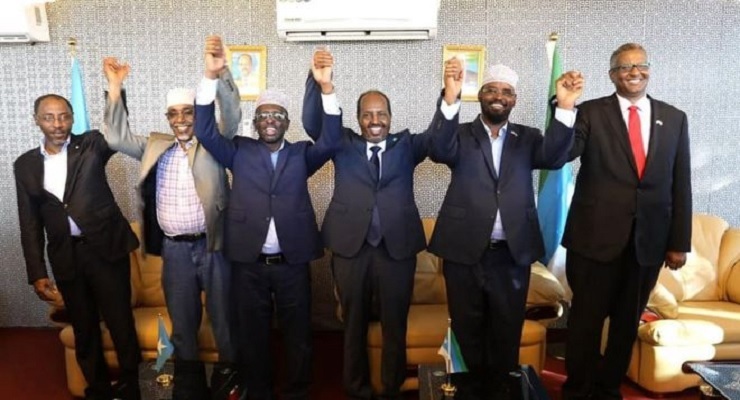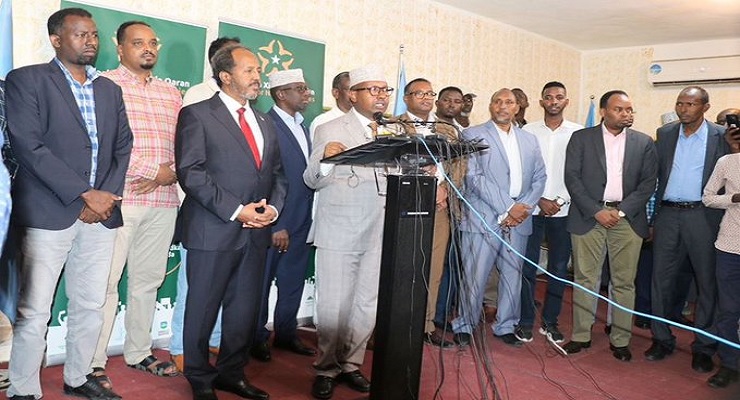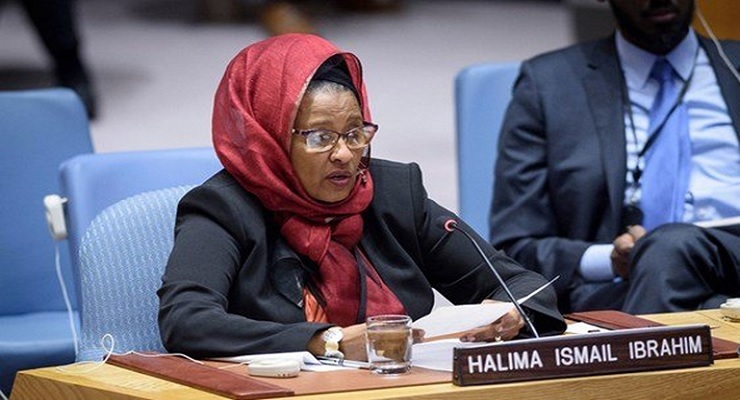
Until half a century ago, Somalia was a stable emerging democracy in the African continent after the former Italian and British Somaliland territories united to form the Democratic Republic of Somalia.
A year into internal self-rule and ratified through a popular vote, the country approved a constitution and the 1969 legislative election saw the Somali Youth League (SYL) appear victorious with 73 of 124 seats in the National Assembly. That constitution allowed for a parliamentary system, with both the President and Prime Minister elected by the legislature.
The trend in democratic governance was however ripped apart following the assassination of then-President Abdirashid Ali Sharmarke in October 1969. Days on, long-time military dictator Maj. Gen. Mohammed Siad Barre successfully took over power in a bloodless coup, but militias loyal to clan warlords ousted him in 1991, plunging the Horn of Africa nation into an all-out complex civil war. Rival clan factions emerged virtually throughout, competing to fill the power vacuum and clashed for dominance.
Following long-running transition periods, Somalia is nurturing a nascent federal system agreed by the different political stakeholders in 2004. A clan-based 4.5 system is used to share power. Each of the four major clans shares power with a collection of marginalized communities, often leading to a bitter power struggle between political elites.
The UN announced the end of a transition process shortly before President Hassan Sheikh Mohamud came to power in 2012. However, on the run-up to the end of his only four-year term, Mohamud conceded he couldn’t hold the anticipated ‘one-person, one-vote’.
“It’s the pinnacle of democracy that everyone who is eligible votes to elect, but there’s a big gap between there and where we stand.”
Additionally, highly needed security, legislative, and institutional preparations were lacking. The federal government and regions proceeded with the informal National Leadership Forum to oversee the exercise, incapacitating the constitutionally-mandated electoral commission.
“The overall arrangements for the elections,” EU Election Expert Mission observed in its report, “were conducted with the limited compliance with the existing constitutional or legal framework.”
Less than one percent of the country’s estimated 12 million participated in the process to elect the next legislature — the current 10th Parliament. Federal member regions were tasked with electing the bi-cameral legislature after simultaneous changes to the election timetables.
Although regional legislatures elected the 54 senators in the Upper House, electoral colleges of 51 delegates elected each of the 275 members in the House of the People, after which a joint-sitting of Parliament swept President Mohamed Abdullahi Farmaajo to power.
According to the UN Mission in Somalia, “the parliamentary stage of the elections had been marred by instances of bribery, vote-buying, intimidation, and delays”. Both elections had confusing names: some modeled them “indirect” while others, “limited electoral colleges” elections.
Similarly, incumbent President Farmaajo promised to conduct a universal franchise in the campaigns leading to his second term.
“I pledge to transition from the 4.5 system, and the Somali people will cast their vote in the next poll,” President Farmaajo declared at a Defense Ministry-held ceremony, shortly after taking office.
Somalis from across the board welcomed the pledge again, inducing great optimism for fundamental democratic reforms. They rejoiced their need to engage in decisions that affect their lives and actively contribute to their future. Would their concerns and recommendations shape the next campaigns to occupy Villa Somalia?
Mogadishu insists it’s committed to conducting a ‘one-person, one-vote’ poll despite increasing opposition pressure and a fragile security situation. Attacks by the Islamist militants al-Shabaab remain existential.
Meanwhile, with just a year to the ballot, the stakes couldn’t be higher. Details surrounding the exercise have been unclear. Contentious questions remain unaddressed or disagreed: from the next electoral model to the constitution review process and much more. Parallel competing political priorities continue to shape the process, but first, how’s the relationship between the federal government, opposition, and regions making or breaking the process?
In recent months, opposition party figures led by former Presidents Mohamud and Shariff Sheikh Ahmed have questioned the government’s handling of and intentions in regional elections. President Shariff, known for his uncompromising views, was appointed to lead a six-party alliance dubbed the Forum for National Parties (FNP) inaugurated in the capital. This mobilization comes at a time of deep tension and simmering resentment between the two levels of governance, which the opposition intends to weigh in.

“FNP calls the revival of the stalled talks between the two levels of government, and to reopen a political space for debate on national political issues and to reach national political agreement on contentious pertinent issues before the FGS’s mandate expires in February 2021,” says the opposition alliance in its first communiqué critical of the government.
The triad hasn’t quite seen eye to eye. The federal government has embarked on unrelenting hegemonic prowess over regions, continuously seeking to squash the Council of Interstate Cooperation (CIC) — a five-member block the government accused of power overreach. Cooperation ties have been largely strained. Three of the five held contentious elections, all accusing the federal government of “meddling” in regional electoral processes.
Manipulation of the regional processes is not unique to the current regime. The latest UN Panel of Experts report lifts the lid on serious allegations of malpractices the government resorted to installing Abdiaziz Mohamed Laftagareen in the South-West regional election last year.
“In late 2018, the regional presidential electoral process in South-West State was marred by multiple postponements, resignations, allegations of excessive interference by the Federal Government and a deterioration in the security environment that resulted in the killing of 15 civilians,” the panel, which interviewed members of the regional assembly, including some electoral officials forced to resign, says in its report.
Marred by lack of transparency, the report captures the extent to which vote-buying and outside interference tilted the process in favor of Mogadishu’s preferred candidate.
“82 South-West State Members of Parliament were flown to Mogadishu in early November 2018 to receive an initial payment of approximately $5,000 each, in exchange for their support for particular presidential candidates.”
The report, publicly released last week, mentions a further amount estimated at between $20,000 – $30,000 offered to regional MPs once Laftagareen came to power.
With the provisional constitution under review for the eighth year running, uncertainties about how and whether the document will be subjected to a referendum remain. However, the alliance is branding itself as the guarantor of an all-inclusive government ahead of campaign periods. But in what would likely be a show of political maturity, newly-registered political parties will campaign for support from regional governments.
The National Independent Electoral Commission unveiled a five-year strategic plan in 2017. As it gears to oversee the 2021 process, it faces tests of aspiration and trust from an electorate unfamiliar with the process. It has registered 57 parties, but the introduction of a controversial clause on instances when elections could be delayed in the Electoral Law, currently awaiting legislative approval, raised eyebrows for potential “extension”.

Needless to say, President Farmaajo’s interest in a re-election comeback came to the limelight when he renounced his American citizenship.
The next election will be seen as a milestone in the country’s recuperation from decades of war. But analysts worry the deepening mistrust between the ruling and opposition class and their lack of benevolent discussions as further undermining the process.
Abdirashid Hashi, the director of the Heritage Institute of Policy Studies, asserts “firmness in agreeing to an electoral model”.
“Once there exist the government and a collection of the opposition who are facing each other, it’s appropriate to ask how can we move forward?” asks Hashi, referring to potential agreements with the opposition on the looming exercise.
Hashi underscores the substantial need for a concerted effort to strike a reconciliatory tone.
“What I see now is to put effort into discussing one issue, and reach [an] agreement that’s mutually acceptable and compromising… That issue is agreed and acted upon, on how to reach a generally agreed timely election in 2020/21.”
Somalia has a history of presidents losing re-election bids.
Adrian Tawfik says
Great work. Welcome to the team Abdiwel!
Abdiweli Hassan says
Thank you so much for bringing me on board, Adrian!
Zain Abdullah says
great work Mr. Abdiweli Hassan